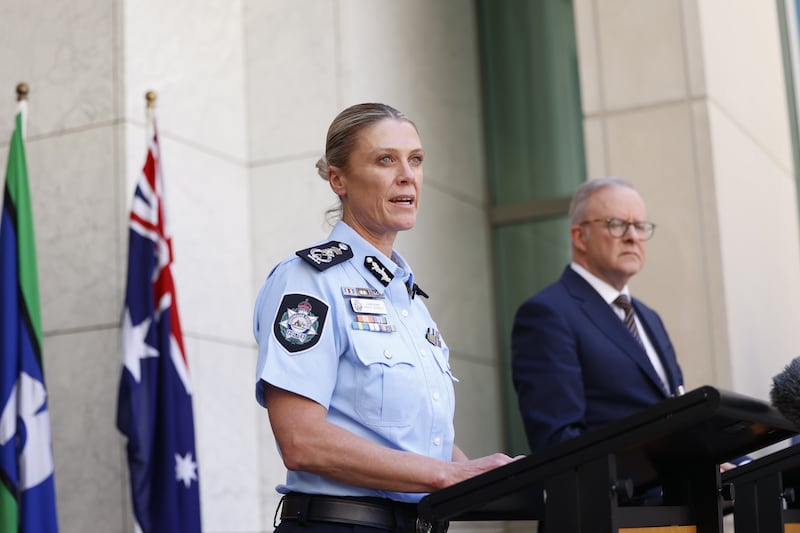Dr Daniel Reardon was building a necklace that sounds an alarm on facial contact, when the mishap occurred on Thursday night.
The 27-year-old astrophysicist, who studies pulsars and gravitational waves, said he was trying to liven up the boredom of self-isolation with the four powerful neodymium magnets.
“I have some electronic equipment but really no experience or expertise in building circuits or things,” he said. “I had a part that detects magnetic fields. I thought that if I built a circuit that could detect the magnetic field, and we wore magnets on our wrists, then it could set off an alarm if you brought it too close to your face. A bit of boredom in isolation made me think of that.”
However, the research fellow at Melbourne's Swinburne University realised the electronic part he had did the opposite - and would only complete a circuit when there was no magnetic field present.
“I accidentally invented a necklace that buzzes continuously unless you move your hand close to your face,” he said. “After scrapping that idea, I was still a bit bored, playing with the magnets. It’s the same logic as clipping pegs to your ears - I clipped them to my earlobes and then clipped them to my nostril and things went downhill pretty quickly when I clipped the magnets to my other nostril.”

Dr Reardon said he placed two magnets inside his nostrils, and two on the outside. When he removed the magnets from the outside of his nose, the two inside stuck together. Unfortunately, the researcher then attempted to use his remaining magnets to remove them.
"At this point, my partner who works at a hospital was laughing at me," he said. "I was trying to pull them out but there is a ridge at the bottom of my nose you can't get past. After struggling for 20 minutes, I decided to Google the problem and found an article about an 11-year-old boy who had the same problem. The solution in that was more magnets. To put on the outside to offset the pull from the ones inside.
“As I was pulling downwards to try and remove the magnets, they clipped on to each other and I lost my grip. And those two magnets ended up in my left nostril while the other one was in my right. At this point I ran out of magnets.”
Before attending the hospital, Reardon attempted to use pliers to pull them out, but they became magnetised by the magnets inside his nose. “Every time I brought the pliers close to my nose, my entire nose would shift towards the pliers and then the pliers would stick to the magnet,” he said. “It was a little bit painful at this point.
“My partner took me to the hospital that she works in because she wanted all her colleagues to laugh at me. The doctors thought it was quite funny, making comments like ‘This is an injury due to self-isolation and boredom.’”
At the hospital, a team of two doctors applied an anaesthetic spray and manually removed the magnets from Reardon’s nose.
When they got the three out from the left nostril, the last one fell down my throat,” he said. “That could have been a bit of a problem if I swallowed or breathed it in, but I was thankfully able to lean forward and cough it out ? Needless to say I am not going to play with the magnets any more.”
Medical records from the emergency department said that Reardon did not have difficulty breathing, and denied the presence of further magnets up his nose.
The astrophysicist said he had ruled out further experiments with the magnets and face-touching, and would find other ways to pass the time while at home.
“I’m actually getting a lot of work done. Working remotely is not that bad. We are also renovating our house, so I am building shelves, making furniture and doing some tiling.” – Guardian















